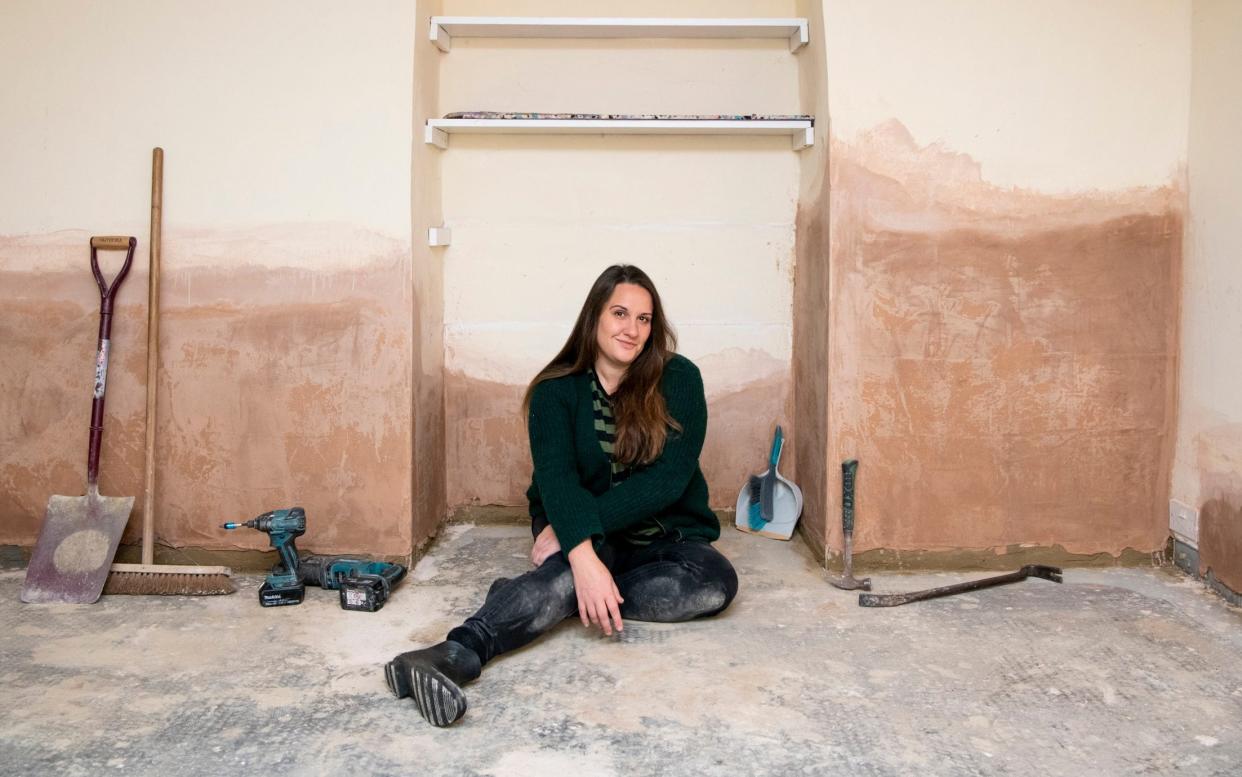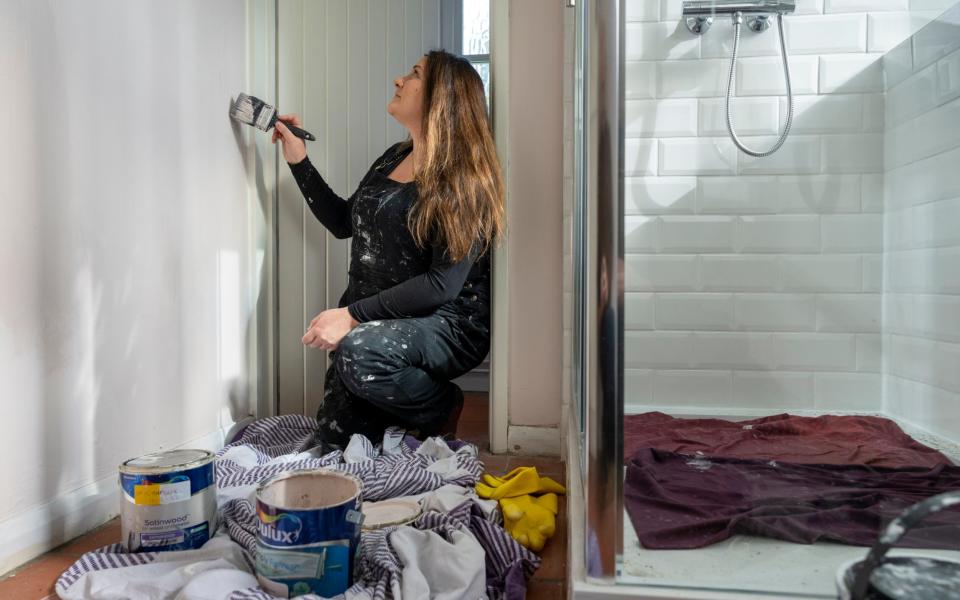If only mental health issues were as easy to fix as my cottage

I try to stay upbeat in this column. I try to stay upbeat in life. I find (where possible) when you’re going through a crisis a positive attitude helps. Still as optimistic as I am, and honest as I try to be here, there are things I’m struggling with that I also struggle to write about.
When I started this column – having left my fiancé, lost my job and left London on a journey that took me to Land’s End – I felt I was hurtling through a midlife crisis unique to me. But as the pandemic has unfolded and I’ve written here about my journey – and read what you’ve written back to me – I’ve come to understand how many other people are enduring similar experiences.
I have lost count of the friends who lost their jobs during the pandemic. Recent reports into the impact of Covid-19 on the labour market show there are still half a million fewer people in work now than when lockdown began. Many are still struggling to get back on solid financial ground, their struggles made worse by the cost-of-living crisis.
My break-up, which felt so much like my own personal failure in love, was being mirrored around me, as the pressures of the the pandemic led to widespread splits and divorces – the full fallout of which remains to be seen. Some families, who struggled on in “crisis mode” during lockdown are only now finding they have space to work out what they need. One report by the UK’s largest family law firm, Stowe Family Law, found divorce inquiries to legal firms had surged 95 per cent in the wake of the pandemic.
Meanwhile the exodus from the cities to the countryside, chronicled widely, not just by me, seemed less less a reflection of people’s desire to physically relocate than some broader ennui and dissatisfaction with modern life.

We grieved during the pandemic on a scale most of us had never known before. We mourned for loved ones we lost but were barely able to say a proper goodbye to. We grieved for colleagues who passed, for family of friends, friends of friends, sometimes for people we hardly knew. Sometimes we grieved just watching the mounting numbers of Covid losses grow. We grieved for all the other things we lost too: our old lives, our friendships, experiences that passed us by, two years of our lives. And now we are suffering a pandemic aftershock from the collective trauma we’ve all endured.
Although the problems I faced during the pandemic were a struggle – and there were times that being heartbroken, homeless and jobless overwhelmed me – I knew that ultimately they were practical problems which had practical solutions. There is something very reassuring about that.
Although I jokingly gripe here about my heating, damp and struggling with whether I’ve painted too many rooms pink, the truth is that dealing with issues at my cottage is easy because they can be tackled. One joy I’ve re-discovered in renovating is the pragmatic solutions building work presents: Something breaks, or leaks, and a man comes over and says: “Ah, that’s the pipes/boiler/pump. That’ll be 500 quid.” And, although I often wish it were cheaper, at least these are problems that can be fixed. I wish everything was like that.
When I left my fiancé, the reason I did not just move back home is because “home” was shattered for me by mental health issues when I was a teenager, never to be repaired. One good thing I can say about that experience is that it gave me a sense of perspective, to know that I’m lucky when problems can be fixed. It also blessed me with resilience.
I keep trying when things fail. When I lost my city job, I decided to start again in the country. When the car I was driving broke down, I found a replacement (for £500). When the first house I was buying fell through, I moved onto the sofa bed of a generous friend. When my second Cornish house purchase collapsed, I tried moving to Somerset. When the third took almost six months, I lived in a caravan.
Although at times I’ve found myself flailing, I have kept my head mentally above water. But it hasn’t been so for everyone around me. During the pandemic, as I’ve juggled practical problems, people close to me have battled with serious mental health issues for which the solutions are not so clear.
In the course of the pandemic, two people very close to me were sectioned. Issues they had been struggling with were exacerbated by fear, pressure and isolation. Trying to support them has been a private agony for me: in many ways, it’s been far harder than dealing with my own problems, which at least have a fix.
Of all the fallouts from the pandemic the one that will be hardest to measure is the impact it’s had on our mental health. We know it will be profound. Baroness Hale has rightly recommended that the Covid-19 inquiry be expanded to examine the impact of the pandemic on the UK’s mental health. What we know already is stark. Some 1.6 million people, including 374,000 under-18s, are already on the official waiting list for NHS mental health care. According to the Centre for Mental Health, an additional 1.5 million under-18s will need new or additional help as a result of the pandemic.
The Priory group, meanwhile, reports that between January 2020 and January 2021 it saw a 42 per cent increase in the number of inquiries for services about depression, and a 21.5 per cent increase in inquiries about anxiety.
Mental illness has no simple solutions – so I won’t try to lay them out here. And perhaps the first step to addressing mental health problems is acknowledging their complexity. As we try to comprehend the effects of the pandemic there will be some things we can measure the impact of and other things for which there will be no quick fix – and perhaps no words.


